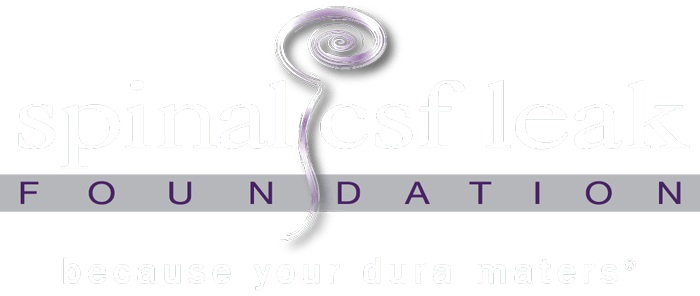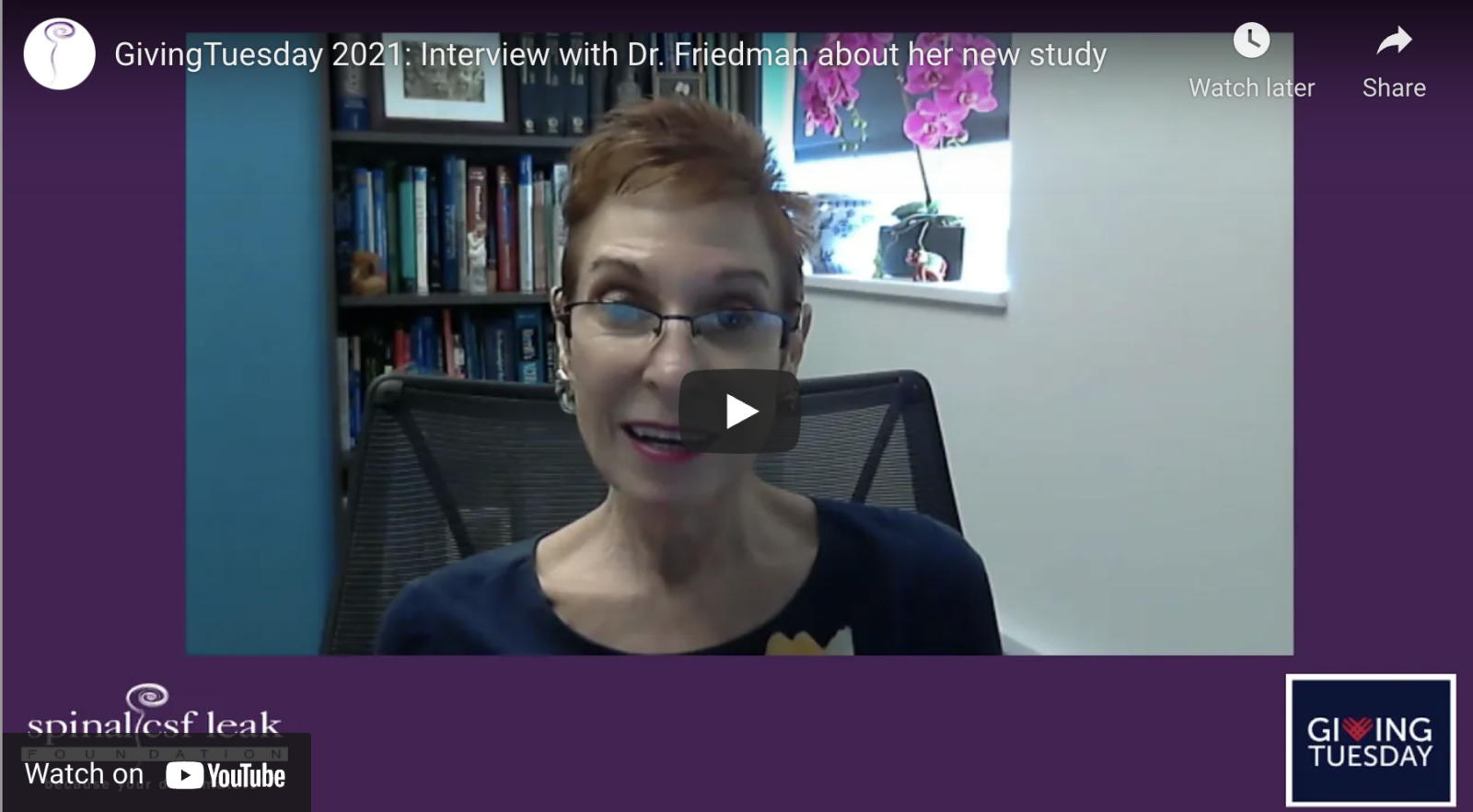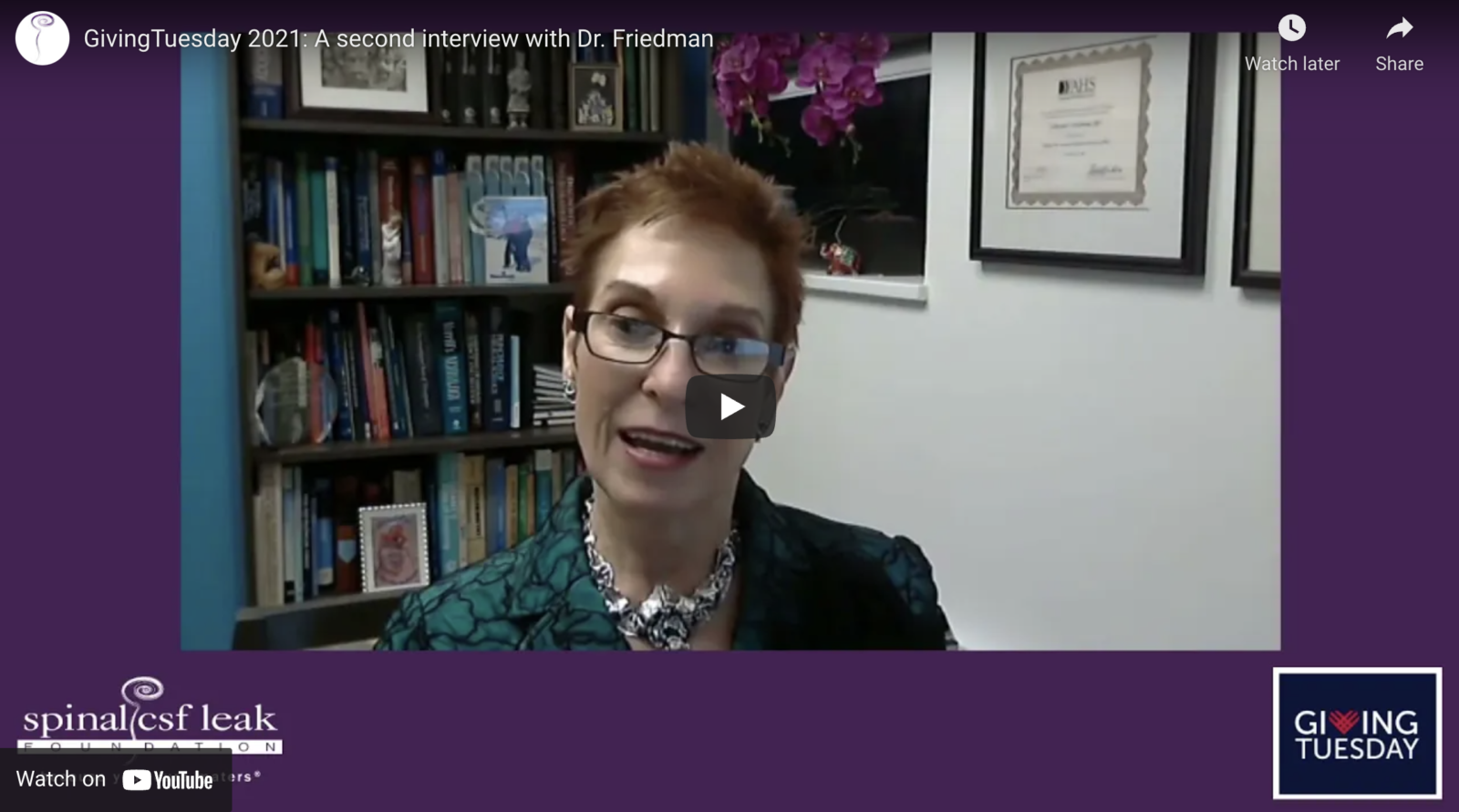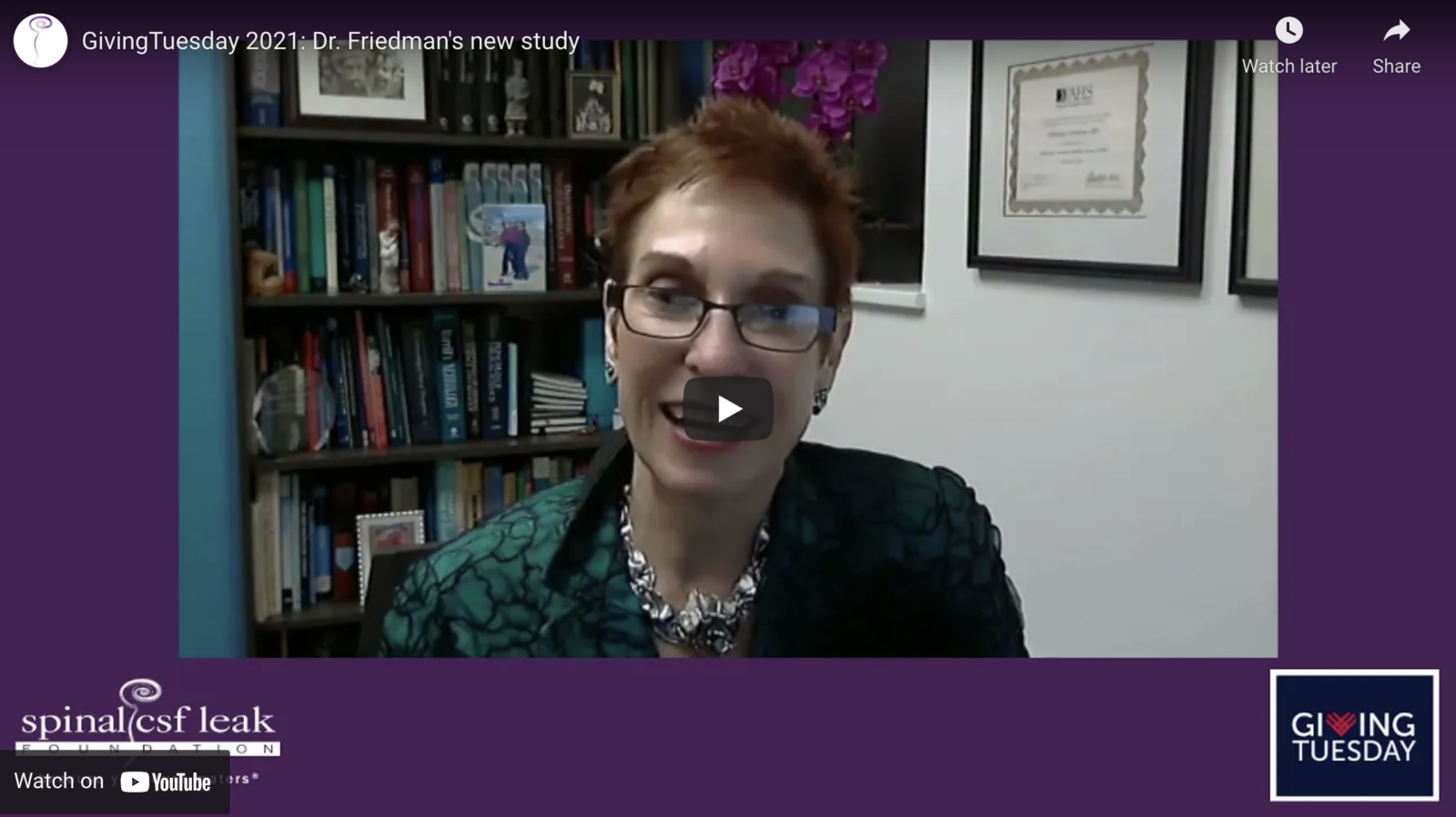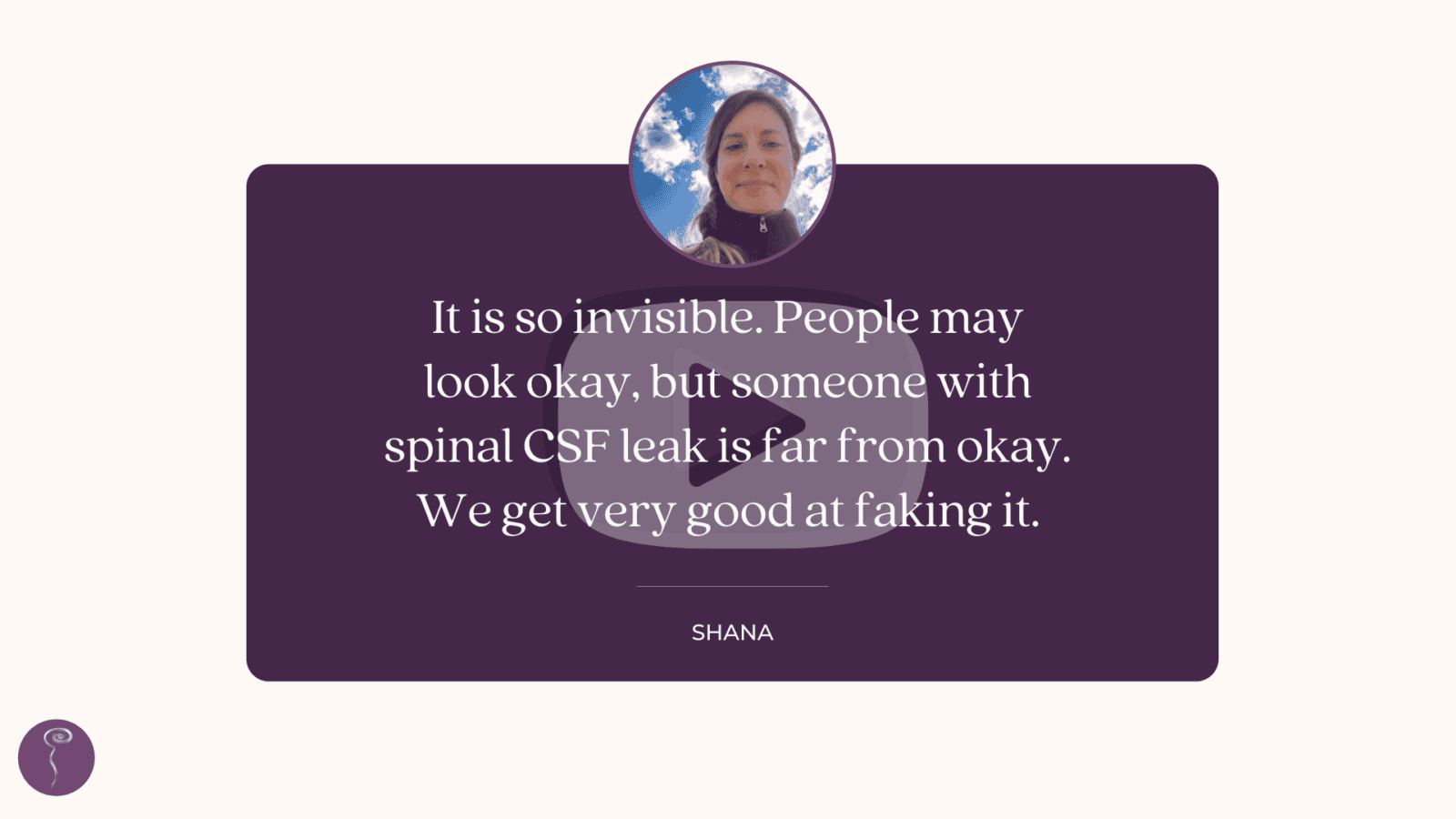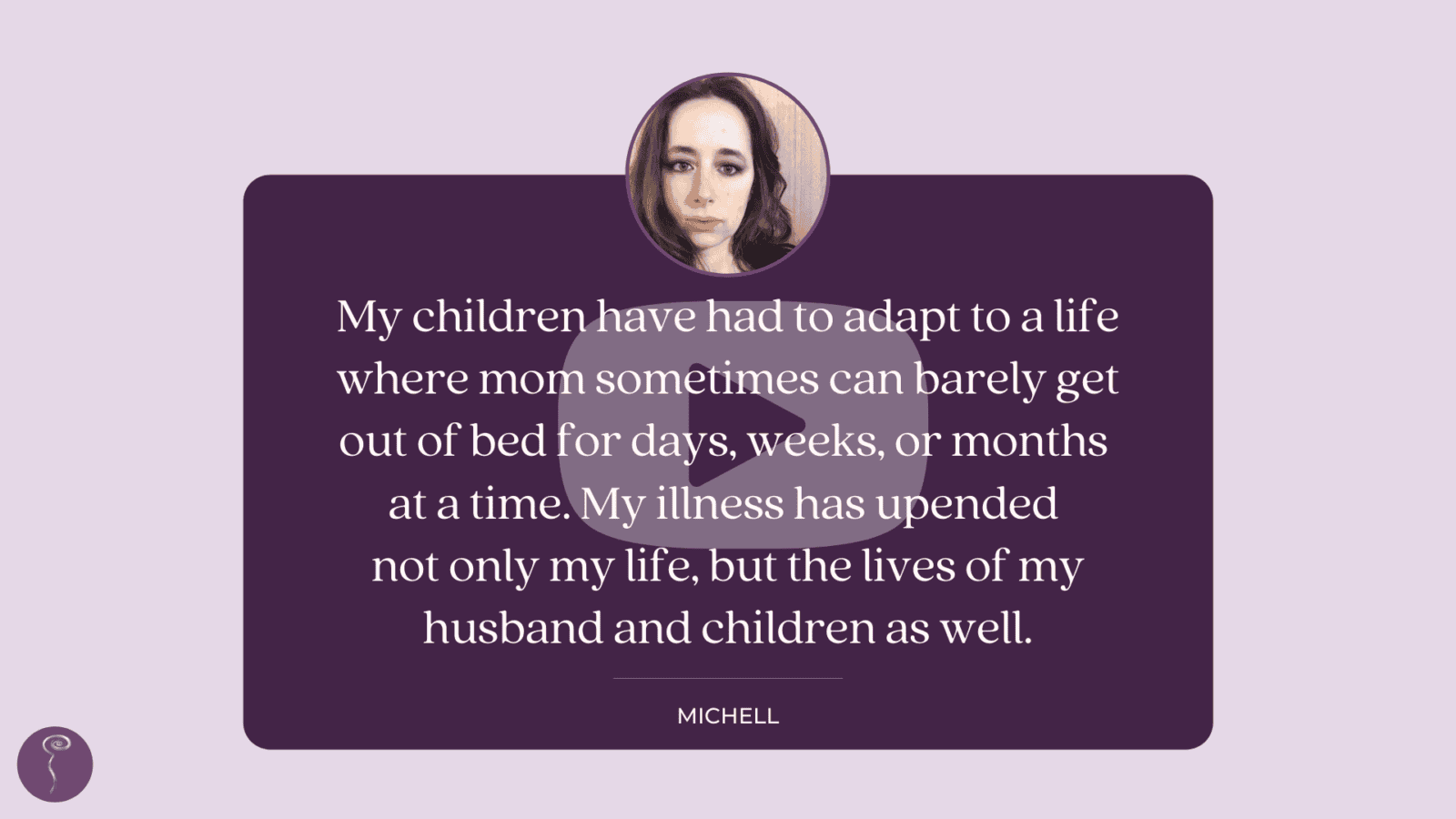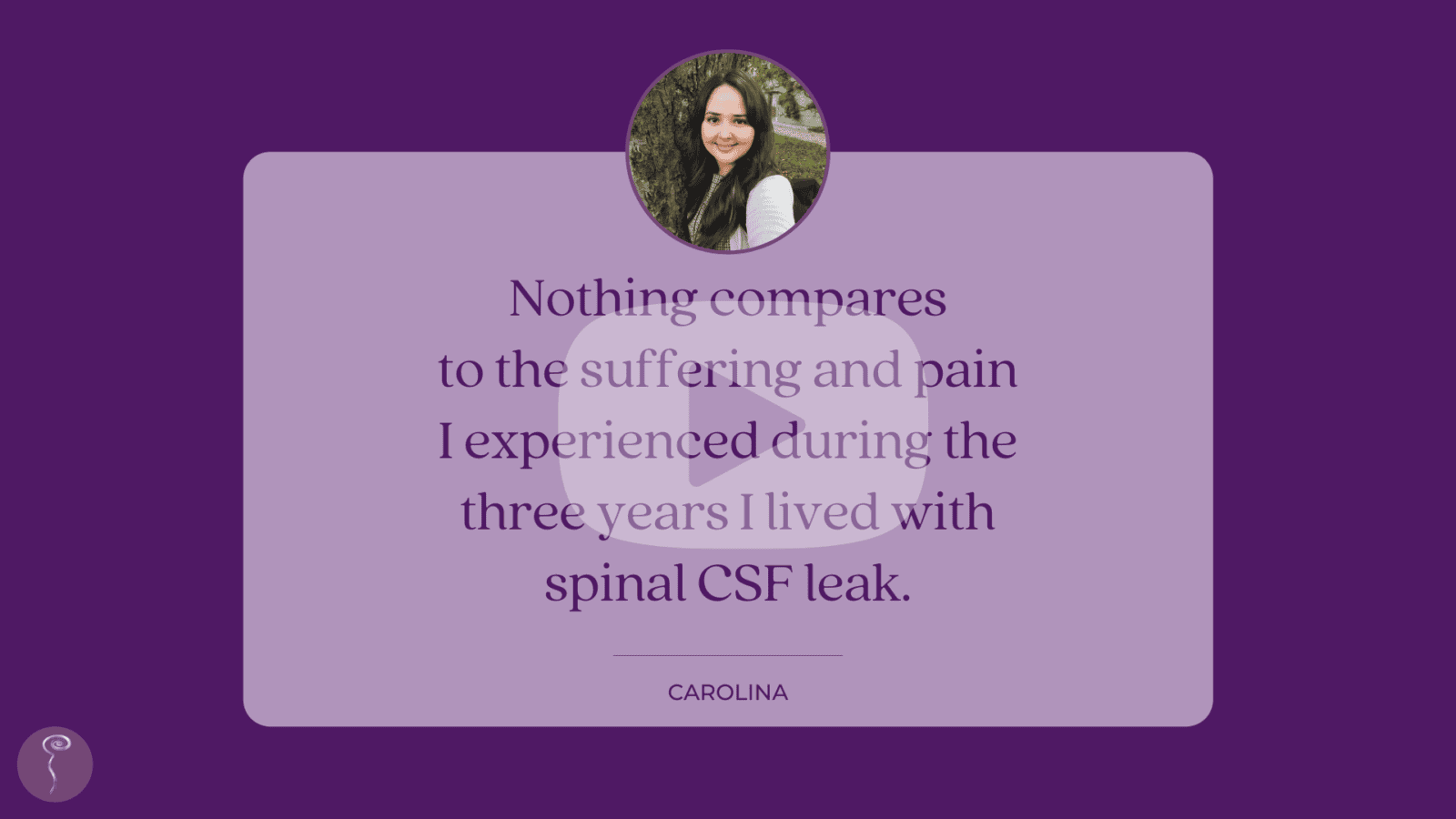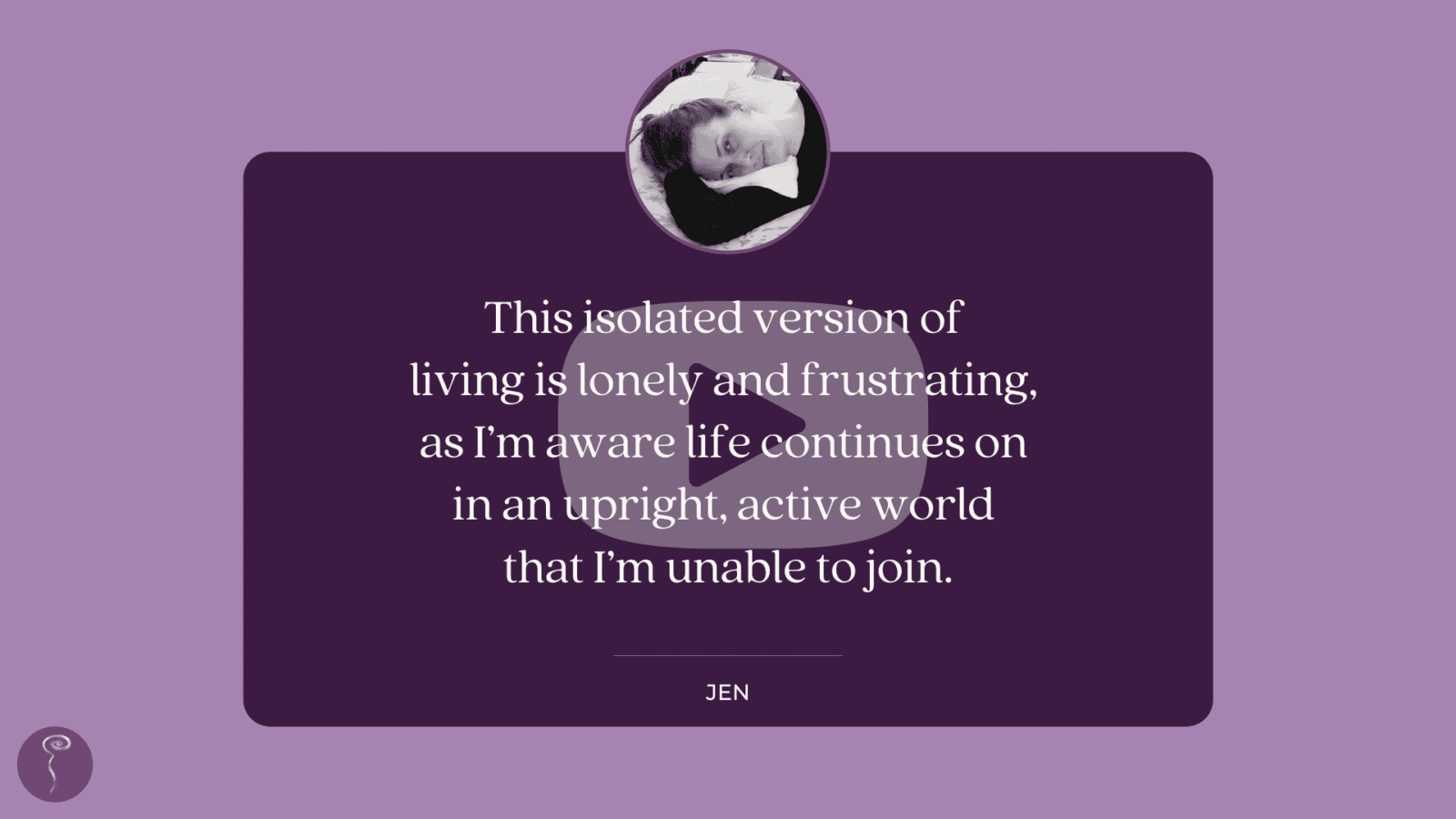What is GivingTuesday?
GivingTuesday, a day when people from around the world support their favorite causes, is built around the idea of “radical generosity,” which the organization defines as “the concept that the suffering of others should be as intolerable to us as our own suffering.” This aligns perfectly with our own mission, which is to reduce the suffering of people affected by spinal CSF leak. We aim to do this through raising awareness, educating people (including medical professionals), and funding research. This GivingTuesday, we have a special goal in mind.
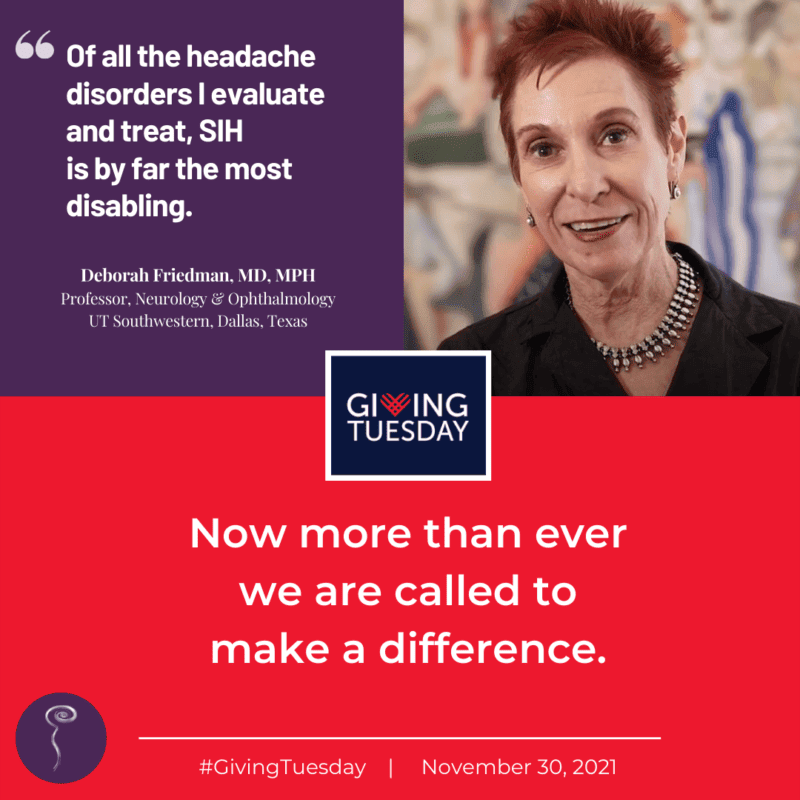
This year we’re raising funds for an important new research study on quality of life.
As those who live with it know, spinal CSF leak profoundly affects our physical, mental, and emotional well-being. But did you know that the impact of spinal CSF leak on quality of life has never been systematically investigated or documented in the medical literature?
We want to change that.
That’s why we’re hoping to raise $50,000 this Giving Tuesday to fund Dr. Deborah Friedman’s new research study: “Quality of Life in Patients with Headache from Suspected or Confirmed Spontaneous Intracranial Hypotension (SIH): A Pilot Study.”
A new study on quality of life
In this study, Foundation medical advisory board member Dr. Friedman hopes to create a validated, specific scale to quantify the level of disability experienced by people with spinal CSF leak. Dr. Friedman says that of all the disorders she evaluates and treats, spinal CSF leak is by far the most disabling.
“The observed impact of spinal CSF leak on our patients’ lives is substantial,” she says, noting that spinal CSF leak frequently produces loss of employment (with subsequent loss of health care coverage), generalized physical deconditioning, depression, or even divorce.
“Treatment is difficult and often unsuccessful, requiring multiple invasive procedures that may produce complete or incomplete relief, transient relief, or no relief.” She also points out: “Even when successfully treated, there are often lingering manifestations, [including] anxiety about developing another leak, and the need to limit physical activities to avoid a recurrence. However, there are no studies investigating and documenting the impact of spinal CSF leak on quality of life in the medical literature.”
Her pilot study will begin with the patients Dr. Friedman sees at UT Southwestern and will eventually expand to include other centers.
Ultimately, she hopes that the insights on quality of life gleaned from her study will benefit patients with this disorder.
How you can help
This year, in addition to Facebook matching donations, we have a wonderful and generous matching donor. The Schoemaker Family Foundation is matching GivingTuesday donations up to $15,000! That means your donation has the possibility of making double the difference in the lives of people with spinal CSF leak.
give on facebook

give via the foundation

share your story
Share your story with friends, family, and social followers to raise awareness about the debilitating nature of spinal CSF leak. Here are some examples of patients who have shared their experience with spinal CSF leak this GivingTuesday.
